
Comparing Ourselves to Others: The Singapore Syndrome
November 9th, 2018
We Jamaicans have a bit of an obsession with Singapore, don’t we?
Our romance with this small, densely populated country – some 18,000 miles away, with a population twice that of Jamaica – still lingers. Some of the passion may have waned, as romances tend to do, in the past few years. But what sparked it, in the first place?
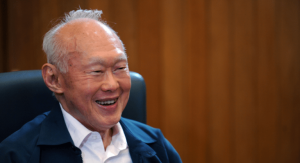
Singapore’s founding father and renowned leader, Lee Kwan Yew. The country’s forecast 2018 growth rate is a modest 2.5 – 3.5 %. (Photo: The Online Citizen)
One person – the kind of “Messiah” we still apparently love – has a lot to do with it. The late Lee Kuan Yew was, no doubt, a great leader. He was a man of vision, who loved his country and applied certain methods to achieve his goals. He visited Jamaica in the 1960s and was impressed, so the story goes. He went home, and Singapore climbed to dizzy heights, while Jamaica fell into the socio-economic doldrums. Returning for a visit in 1975, the Singaporean leader was disappointed. He described then Prime Minister Michael Manley as “eloquent” but misguided; and made a scathing remark about Jamaicans not working, having left slavery behind.
Let’s wring our hands at this point. Yes. We’re terrible. We messed up.
So, we are still somewhat bedazzled by Singapore’s beauty. Who wouldn’t be? They have solar-powered trees. They have a highly-educated population, living in gleaming skyscrapers. They are tough on bribery and corruption. The people are so disciplined, honest, hard-working and well-behaved. What’s not to love? We remain mesmerized, trekking off to education conferences and economic dialogues. We return with stars in our eyes.
Well, I have a theory about Jamaicans and Singapore. We enjoy using that country as a stick to beat ourselves with. It’s somewhat masochistic. “Oh, we should have spent much money on education like Singapore,” we say. “Oh, there is such great economic opportunity in Singapore. Why didn’t we train our people?” And we agonize over the good old days when Jamaica was “the pearl of the Caribbean,” and Singapore was struggling. Our people are indisciplined, dishonest, lazy and rude (the opposite of the above).
Let’s face it, though; nowhere’s perfect. Singapore has a version of a democracy, or so I understand. It is quite wobbly in areas like religious freedom, internet freedom and labour rights. Its media, civil society and freedom of expression are heavily curtailed. They have the death penalty for crimes like drug trafficking and flogging in prisons. Over the years, Singapore has not “loosened up.”
Many Jamaicans like to say, “We are prepared to sacrifice some human rights if we can have an orderly, prosperous society like them.” However, if you are a Jehovah’s Witness, a trade unionist or a radio talk show host in Singapore, the sacrifice is real. Nevertheless, let us continue beating ourselves up with Singapore. We missed the boat, we wail!
So, when you have missed the boat, you simply wait for the next one.
Singapore is an expensive, gas-guzzling 15-hour flight away. However, I can think of somewhere much closer to home that we could take a closer look at. In many respects, it has a lot to offer. Unlike Singapore, this country does not believe it has already “arrived” in terms of development. It is looking at development differently, in fact. It is unpretentious, but it has plenty of vision and focus.
This country is Costa Rica. Just over one thousand miles and a short flight away, it has a Caribbean coastline. It has a long-standing, stable democracy. It is relatively safe compared to many other countries in the hemisphere (although hardly crime-free). According to some data I have seen, local purchasing power for the average citizen is some 35% lower than for Jamaicans. They play a pretty good game of football, too. It’s doing a few things right.
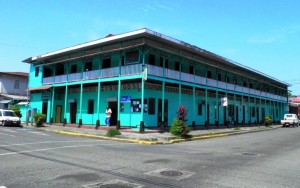
The “Black Star Line” Liberty Hall in Puerto Limn, Costa Rica, was built in 1922. (Photo: elmundo.cr)
Why, Costa Rica even has a Vice President of Jamaican descent! Epsy Campbell-Barr took up office earlier this year. In fact, the historic links with Jamaica are strong. There is a Liberty Hall; Marcus Garvey travelled and published a newspaper there in 1910.
What appeals to me the most though, is Costa Rica’s embrace of sustainability and (like Lee Kuan Yew) a long-term vision. Like Jamaica, the country is rich in biodiversity. Costa Rica has embraced renewables, to the extent that for the past four years it has generated some 98 per cent of its electricity from green sources. Its goal is to become carbon neutral by 2021. Around a quarter of the country is protected; with one of the worst deforestation rates in the world some thirty years ago, the Government put incentives for landowners in place to encourage forest conservation, and it worked. In June 2017, Costa Rica announced its intention to completely eradicate single-use plastic by 2021 – the first country in the world to do so. It is building its own recycling plant. It has just passed laws encouraging the import of electric cars. Need I go on?
As a pioneer in eco-tourism, Costa Rica has around 3 million visitors per year. Its tourism competitiveness is growing annually by about eight per cent. A major birding meeting took place there this year (did you know that there are over 50 million bird watchers in the U.S. and over 10 million in Europe?) There is a flourishing health and wellness tourism sector (another area where tourists have more money in their pockets).
Like Jamaica (and unlike Singapore) Costa Rica is mainly rural. It has agriculture but is also moving from manufacturing to service industries. Its official unemployment rate is about the same as Jamaica’s (as I said, nowhere’s perfect) but it is looking to the future.
Now, I am sure there other countries we can look at. Costa Rica is but one close neighbour that, to me, is heading in the right direction.
Let’s just look at a different model, instead of stressing out over the impossible dream of “what could have been.” The Singapore train has left the station.
Tags: biodiversity, carbon neutral, Caribbean, corruption, Costa Rica, deforestation, ecotourism, education, electric vehicles, Epsy Barr Campbell, Jamaica, Lee Kwan Yew, Marcus Garvey, Michael Manley, recycling, renewable energy, Singapore, sustainable development, tourism
The Gleaner reserves the right not to publish comments that may be deemed libelous, derogatory or indecent.
To respond to The Gleaner please use the feedback form.
4 Responses to “Comparing Ourselves to Others: The Singapore Syndrome”
- We Are the Zoomers
- Living Online with Humans and Birds: NAOC 2020
- Human Trafficking and the Problem of Public Education
- Down Memory Lane
- Are We Ready to Recover from COVID-19?
- Road Safety Matters: Is Your Vehicle Safe?
- Sexual Harassment, Me Too, and the Minister’s Disturbing Giggle
- The Vulnerable Senior Citizens, Private Care Homes and COVID-19
- A Muddle Over Masks
- Here is Something Life-Saving You Can Do: Give Blood!

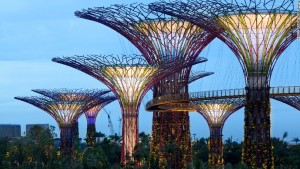
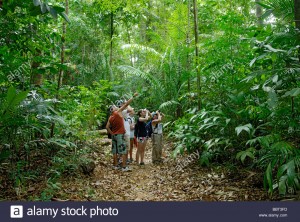
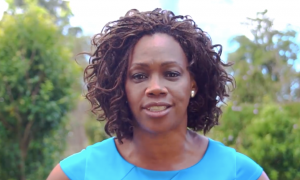


As Jamaicans we not only like to compare ourselves with others, but sometimes we can become unrealistic too. When you think of the disciplined society that Singapore is, Jamaicans are not ready to be submissive. Singapore is a country that is tough on Bribery and Corruption, something that Jamaica struggles with even within the government system. That country produces people that are well disciplined, honest, hard-working and well-behaved, while our people on the other hand are indiscipline, dishonest, lazy and rude. Whatever became of the once “Pearl of the Caribbean”, Jamaica has a far way to go because most of our bad tendencies can be even attributed to leaders and this is a tradition that has lived on for year. While we look on admirably at those who are thriving and want to be like them, we must be willing to change if we want to become better as a people.
I don’t like to generalize and would certainly not agree with your characterization of Jamaican people. But having said that I agree – it’s unrealistic and pointless to compare ourselves with Singapore. I think at this stage we can learn more from other countries that are still striving and going through positive changes. Thanks for your comments!
Remember when Lee Kwan Yew visited Jamaica in the 1960’s how impressed he was? I’m sure he must have seen something good happening in the country why he was so impressed. On the other hand, when he came back to Jamaica in 1975 he was disappointed and thought that the Prime Minister then, (Michael Manley) was eloquent but misguided. He thought that Jamaicans were misguided. It is evident that one of the single most reasons Singapore is so successful is the emphasis placed on education, and the importance of shaping the minds of the younger generation to fit their market needs.
Yes, this is exactly the moment that I am speaking about.